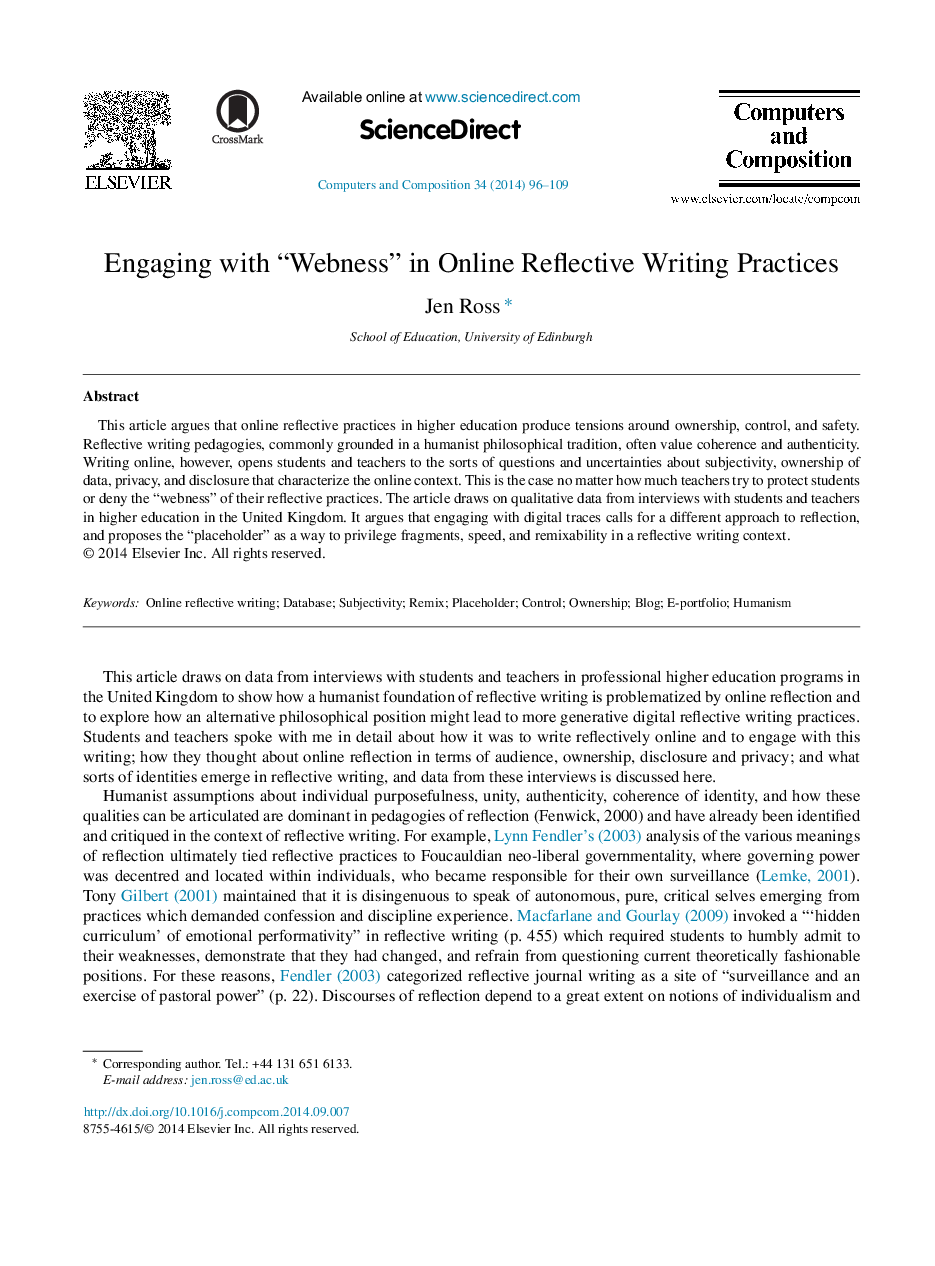| Article ID | Journal | Published Year | Pages | File Type |
|---|---|---|---|---|
| 347803 | Computers and Composition | 2014 | 14 Pages |
This article argues that online reflective practices in higher education produce tensions around ownership, control, and safety. Reflective writing pedagogies, commonly grounded in a humanist philosophical tradition, often value coherence and authenticity. Writing online, however, opens students and teachers to the sorts of questions and uncertainties about subjectivity, ownership of data, privacy, and disclosure that characterize the online context. This is the case no matter how much teachers try to protect students or deny the “webness” of their reflective practices. The article draws on qualitative data from interviews with students and teachers in higher education in the United Kingdom. It argues that engaging with digital traces calls for a different approach to reflection, and proposes the “placeholder” as a way to privilege fragments, speed, and remixability in a reflective writing context.
